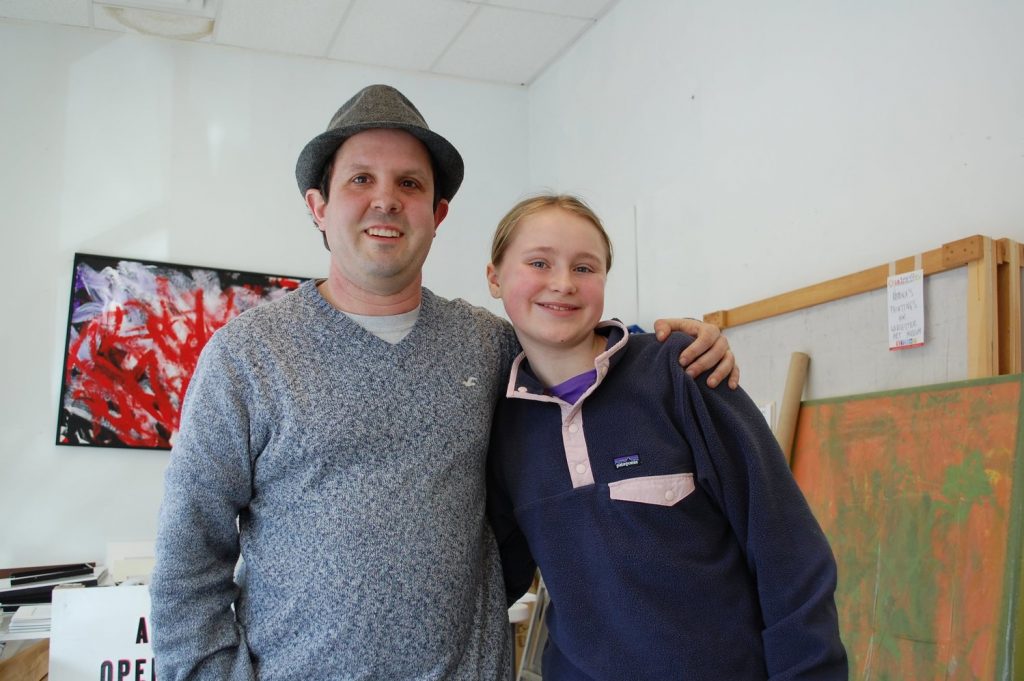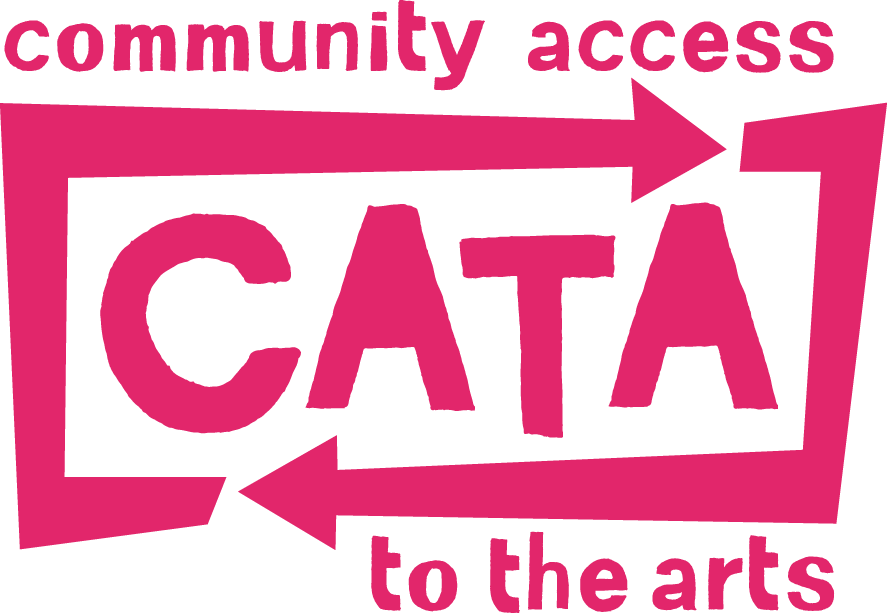10 Jun BERKSHIRE EAGLE: CATA writers share lessons from life with disabilities
June 10, 2019 —

By Jenn Smith, THE BERKSHIRE EAGLE (view on TheBerkshireEagle.com)
GREAT BARRINGTON — How do you learn more about someone who is different than you? As sixth-graders from Monument Valley Regional Middle School learned this semester, sometimes you just have to ask.
As part of a yearlong civic engagement program called “Overcoming Adversity,” the sixth-graders formed a mutual partnership with members of Community Access to the Arts, which helps children and adults with various cognitive and physical disabilities find creative opportunities to take part in.
This spring, students from Kimberly Cormier’s class spent time meeting with CATA members in Janet Reich Elsbach‘s creative writing program. During their visits, the youths and adults took turns interviewing one another and then wrote reflections about their experiences. Through the creative writing program, CATA writers also worked on poems and short stories, all of which were shared during a May 15 afternoon reading at the CATA studio.
Monument Valley student Lilabel Kiersted smiled when she heard Scott Thomas read his impressions of her: “… I think we were both nervous. The moment when things started going well was, I believe, when she asked me about my disability. I told her I have no regrets about it because I wouldn’t have what I have now — CATA and a girlfriend — if I didn’t have my disability. … She didn’t ask me anything I didn’t feel comfortable answering. I made a new friend. I think it’s a good idea for children to learn about disabilities and the people who have them.”
Earlier in his essay, Thomas had explained that he’s has a diagnosis of attention deficit hyperactivity disorder and Asperger’s syndrome, an autism spectrum disorder, which combined, in Thomas’s case, makes him feel anxious in social situations and he finds it hard to concentrate and focus on tasks. It’s challenging to live with, he said, but “I wish people knew I can still enjoy life.”
In her own essay about Thomas, Kiersted wrote that talking with Thomas surprised her and “helped me understand that people who face challenges can appreciate those challenges.” She said that she later realized, after talking with him about his friends, his love of comedy and playing the ukulele that, “I totally forgot he has a disability.”
Kiersted wrote that while sometimes you can tell a person has a disability if they have a speech delay or mobility issue but that, “What might not be obvious is how intelligent they are, what disability they have, and what they see.”
Reich Elsbach said the CATA writers took to heart their responsibility to make the student interviewers feel welcome, and to encourage “honest inquiry” while “maintaining boundaries as needed.”
CATA communications coordinator Chris Watford told The Eagle how one student’s mother reached out to CATA after the interview experience to say how, for her son, the workshop “changed his life,” and how her son has now been reaching out to stay in touch with his new writer friend.
“It’s been a really wonderful collaboration,” Watford said.
And it all started because the students through their lessons about diversity and adversity led them to raise funds for CATA programs through a “Penny Wars” change drive, amounting to $700. In turn, CATA invited the students to learn more about its members and to come to the organization’s annual gala performance showcase of CATA artists and works in dance, written and visual art.
CATA Executive Director Margaret Keller said the Monument Valley students’ donation and collaboration is something “we will long remember.”
Wrote Cormier to Reich Elsbach after watching her students work with CATA artists in a March 27 workshop: “It was one of the top moments of my teaching career. I went home and just sobbed last night because what I experienced yesterday was what life really is all about — teaching kindness, empathy, and respect for each other.”


